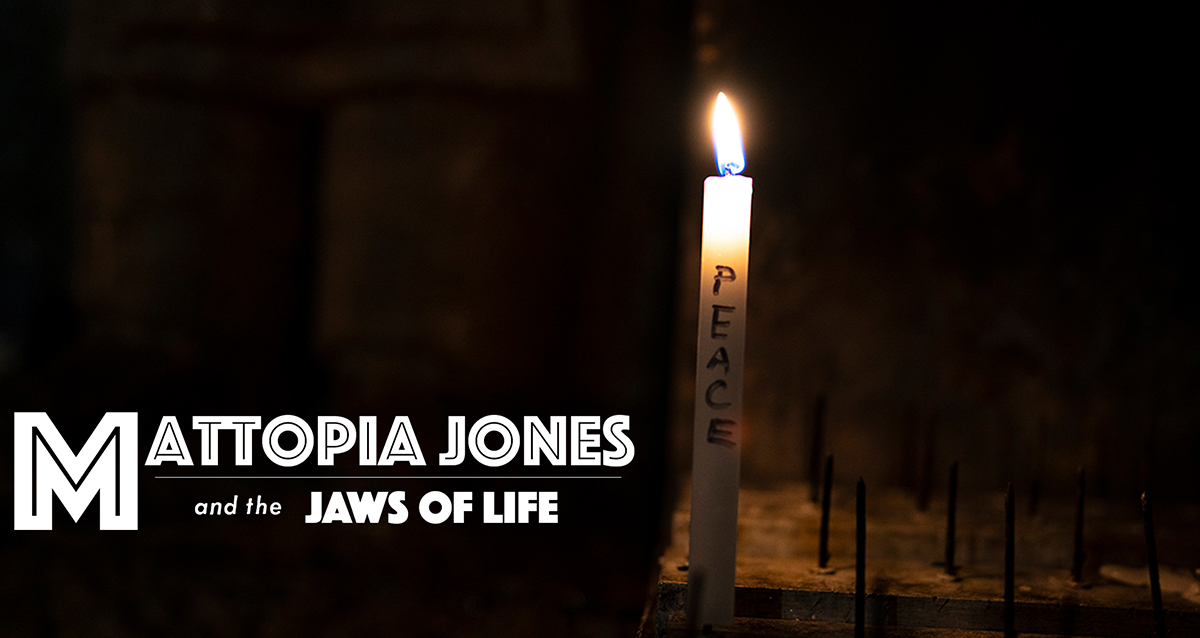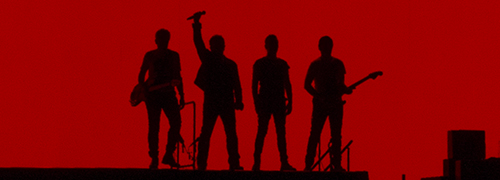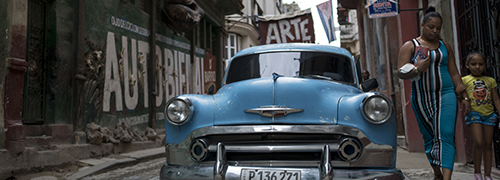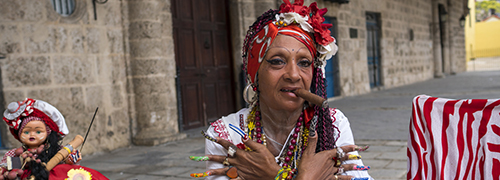Fall / Winter Break 2019 - 2020
21 November 2019 - 4 January 2020
“How about that? U2 actually followed me for a change.”
Mattopia Jones
displaying unjustified hubris after learning U2 visited Mani Bhavan,
Gandhi's Mumbai home, the day after Matty was there
Mahatma Gandhi (1869-1948)
“One of my favorite things to do while traveling is to visit the spots where significant historical figures lived and breathed,” Matty told us. To that end, one of Matty's many mottos is, “No life of consequence is lived without controversy.” It's a consistent characteristc that sets them apart.
At the top of his list is Thomas Edward Lawrence (1888-1935), popularly known as Lawrence of Arabia. During The Young Mattopia Jones Chronicles, Matty sat at pub tables bearing plaques proclaiming Lawrence sat there. He visited sites in Oxford. Searched (kiddingly) for the manuscript Lawrence lost in Reading. Swung by the remains of British HQ where he worked in Cairo. Spent considerable time at his retirement cottage. Even passed by the hospital where he died in Wareham.
Peter the Great (1672-1725). Picked up on this guy's magnitude while visiting St. Petersburg (Russia, not Florida). Quite the trailblazer.
Eva Peron (1919-1952 – died at age 33). Matty doesn't agree with her politics, but this actress turned national icon knew how to command the crowd. She had the charisma, the fire. When Matty went to a tango show in Buenos Aires in 2017, a Portuguese rendition of Don't Cry for Me, Argentina brought the house down. In the 1950s, La Plata, the suburban city which is home to the stadium where U2 played, was called Eva Peron City.
King Rama IX (Bhumibol Adulyadej of Thailand, 1927-2016). He came on Matty's radar while visiting Thailand (for the first time) in 2014. King Rama IX was the real deal and deserving of the adoration he received, based on what Matty's seen so far. How cool was he? He wore some familiar-looking specs (more on that in a bit) and he even has his picture — he's playing a piano — on display at the parking lot entrance to the Hard Rock Hotel in Pattaya. As a bonus, if Matty's not mistaken, at one point King Rama IX met the American king, Elvis Presley.
Then there is Matty's morbid fascination with dead communists, having visited the mausoleums of Vladimir Lenin (1870-1924) in Moscow and Ho Chi Minh (1890-1969) in Hanoi. Unfortunately, Mao Tse-tung (1893-1976) was off limits when he visited Beijing; it was the 10th anniversary of the Tiananmen Square massacre and the government was seeking to squelch all activity in the area. Even in death, with the lavish productions surrounding visits to view their carefully preserved (allegedly1) dead bodies, they prove communism (and its gentrified cousin, socialism — the wolf in sheep's clothing) has nothing to do with the good of the people; it's about venerating people who seize positions of leadership and forcefully create a class of people completely dependent upon that government. It could be argued it's the politicians who have the most to gain from such a structure. The politicians get the gold-plated healthcare plan while the general populace has to make do with something less, something that reflects the lowly status of the peon. The politicians get to keep armed security because they're too important to lose. This should sound familiar to people all over the world.
And that's the perfect segue to start talking about Mohandas Gandhi, a stark contrast to so many of those other controversial figures. All of them, really. It's a happy coincidence that Mattopia Jones' first trip to India coincided with the 150th anniversary of Bapu's birth.
Bapu? Yes. Gandhi was (and still is) so beloved, he was referred to as the “Father of the Nation.” He was also referred to as Mahatma ("Venerable"). But, certainly, his was a life full of controversy.
Gandhi was assassinated on 31 January 1948 in Delhi, mere steps from his home, but it's clear he's never left the country's conscience.
The Eyeglasses
“Iconic” is an over-used word. Everything these days is called “iconic.”
“Iconic” is a moniker that's earned. It's something that's endured over time.
Take, then, Gandhi's eyeglasses. They're perfectly round frames and it's a style that's adorned many significant faces throughout history: Teddy Roosevelt, Bhumibol Adulyadej, John Lennon, Bono and Mattopia Jones are to name but a few key figures.
They are iconic. (At this point, Matty rushes in to offer an editorial clarification: both the eyeglasses and those who wear them, as listed here, qualify as iconic.)
Matty was tickled to see the level to which Gandhi's selection in eyewear has been elevated and revered. Those wireframes are used as a symbol of all things Gandhi. They were spotted as decoration on the rear of vehicles. Not only is Gandhi's image on currency, his eyeglass frames are featured as a design element. They're a simple reminder of a man who transformed an entire nation.
Gandhi in the News
As previously referenced in the Ajanta journal entry, Matty was heading north and he made his way into a political firestorm. The Indian government had just passed an immigration amendment that some deemed discriminatory against Muslims (others considered it merely as a protectionist measure to guard the country's resources — including jobs). It's a complicated measure that won't be examined in detail here. But it revolves around the classification of asylum seekers, basically.
The amendment sparked riots and protests. Even as Matty arrived at Indira Gandhi International Airport in Delhi, protests started to impair traffic. It got so bad, by the time Matty had checked into his hotel room, reports were circulating of canceled flights out of Delhi. Flight crews and passengers could no longer make it to the airport because of the congestion brought on by the protests.
Things were turning violent in surrounding states. And the activity quickly started to impede Matty's activities. As an outsider to all of this, it sounded like there were defined rules of engagement when it came to running protests in India. 1) Protests must conclude by 17:30. 2) The Internet will be turned back on at 18:00.
Yes. The Internet was shut down during the day. No Google Maps. No online ticketing. Nothing. And yet, somehow, one person after another either pretended to not understand what Matty was talking about or feigned ignorance of the matter — even personnel at the hotel. The internet? It's fine. Um. No.
After checking in, Matty asked where he could go to get some cold medicine (a small cold had set in thanks to the dirty air conditioning in the car used during the Ajanta and Ellora road trips). He was advised to go to the Khan Market. You mean where the protests are? Yes. Don't worry. Just the subway station is closed because of the protests. The market's open. It's safe. You'll be fine there. Oh.
The name of Gandhi was invoked time and again during televised debates and news reports. Many argued this is not what Gandhi would want.
That is making an impact on a country, especially considering it's nearly 72 years after Gandhi's assassination.
Mohandas Gandhi in Mumbai
It's easy enough to walk right past Mani Bhavan and have no inkling of its historical significance.
At first blush, it's a non-descript place that blends right in with the neighborhood. Look closer, though. Adorning the gateway is another symbol of Gandhi: the spinning wheel (he spun his own yarn to make his own dhoti). And there's one of those historical plaques: “Mani Bhavan. Gandhiji's residence in Bombay2: 1917-1934. He launched from here Satyagraha in 19193 and civil disobedience in 1932.”
Mattopia Jones visited Mani Bhavan on 13 December 2019. Shortly after that, U2 also visited this special place.
Mahatma Gandhi in Delhi
The key landmark here is Gandhi Smriti, also known as Birla Bhavan. It's where Gandhi spent the last 144 days of his life. It's also the site of his assassination.
Visitors can follow Gandhi's steps from his room (where his handful of earthly possessions are on display) to the very spot where he was killed. It's a powerful experience.
Down the road from Birla Bhavan is Raj Ghat, the site of Gandhi's cremation. Unfortunately, Matty wasn't able to get past the gates; protests and governmental activities left the site closed to visitors across multiple attempts to visit the site.4 A plaque at that gate sums up Ghandhi's achievements thusly: “His Samadhi at Raj Ghat symbolizes Truth, Non-violence, Sarvadharma Samabhava, Gram Swaraj, Trusteeship and Swadeshi, which are the building blocks of a new social order free from all kinds of exploitation, discrimination and domination.” Certainly, easier said than done. And it's not sustainable without one key component Matty would add here: Vigilance.
Time Travel: Ahimsa
Gandhi's birthday is 2 October. It's a national holiday in India. And it's also recognized as the International Day of Nonviolence.
And that leads us all to U2. In November, the band released a new collaboration with A.R. Rahman, an Indian music genius. For those in need of an example of his work, please check out Spike Lee's Inside Man. It's a great movie and the opening credits are accompanied by an A.R. Rahman song.
This new collaborative work is called Ahimsa, which roughly translates into the concept of nonviolence and describes a core tenet of Gandhi's ideology.
Non-violence. Civil disobedience. And, as mentioned in the Ajanta journal entry, the first exmples of democracy. India is a land of striking diversity, more than Matty had anticipated. Yet, the political struggles aren't all that far removed from those faced in the U.S.
While the release of Ahimsa was perfectly timed in advance of U2's first-ever performance in India (accompanied onstage by A.R. Rahman himself), the song and its message is also timely on a much larger scale.
Look at what's making the headlines (or, really, what weakly passes for headlines in this age of pathetic journalism which so lazily takes a culture's pulse based on Twitter feeds). Ellen DeGeneres should hold no shame for being congenial with George W. Bush. The shame is in back-pedaling. Vince Vaughn shouldn't be ashamed of shaking Donald Trump's hand. There is no need to be disrespectful in such situations. That's how relationships are built and progress is made.
Everybody clamors for equality. Yet identity politics serves as a divisive strategy. Focusing on the differences between people is a mistake; the focus should be on the commonalities. At the very least, there's a common goal. What people are missing should be painfully obvious. Too many people work to swing the pendulum the other way, in order to gain equality in their favor. But that's not true equality. Doing so rectifies some problems while also introducing new ones. The benefit for some is a penalty to others. The goal should be to bring that pendulum to a steady state. Stop the swinging. That's where equality for all truly exists — at the point of equilibrium.
The vitriol of politics today is embarrassing. Plenty of people should be embarrassed by their conduct in Washington D.C.5 The conversation has deteriorated beyond partisan rhetoric. It's now nothing more than a bunch of dog whistles.
Disagreement is one thing. Civility is everything.
The people who should be ashamed include those who are disgusted by those interactions. Those relationships are vital to human survival and to getting things done. It's easy to point to Bono (again). He works across the aisle because the goal is bigger than the ego. Clinton? Check. Bush? Check.
Counter that skill with people who today are being coddled in safe spaces where contrarian opinions are forbidden. They will never be able to get out of their cocoon. And they'll be crushed.
History says so. The history that actually happened — not the revisionist garbage that's being tossed around — says so.
Live by this and see what happens: “Be the change you wish to see in the world.”
Who said it? Mahatma Gandhi.
1 Matty will never forget quizzing a Moscow tour guide about V. Lenin. Was that really him? He looked so... good after all this time. We got along great during our walking tour of the city — it was a cold December night and he was her only pupil — she even “got” his goofy comedic antics. She went this far about Lenin: “We don't know it's not him.”
2 The name was changed from Bombay to Mumbai in 1995.
3 1919. The same year as the Paris Peace Conference and the Treaty of Versailles, following the catastrophe of World War I.
4 In Matty's travels, that follows the closures of Mao's mausoleum in Beijing and Casa Rosada in Buenos Aires — both because of fears of dangerous protest activity.
5 The political landscape in the U.S. is running on an old, outdated business model and it needs to be brought into the modern era. The digital age. By day, Matty Jones works in the digital space. He knows all about disruption and the need to constantly adapt and to stay ahead of the curve. Preserving old ways is the path to career obsolescence. Game over. For him, perpetually moving forward is a way of life. And he'll write about that comparison sometime soon.
Continuing the Journey
Next Chapters Coming Soon
- The Perthect Week
- Quokka, Quokka, Quokka!
- Touring Tokyo
- Kamakura, Japan
- The Goal Is Seoul
- Skywalker in Bollywood
- Christmas Break at the Beach
- Anything Can Kill You (If You Let It)
- New Year's Eve in Chiang Mai

























